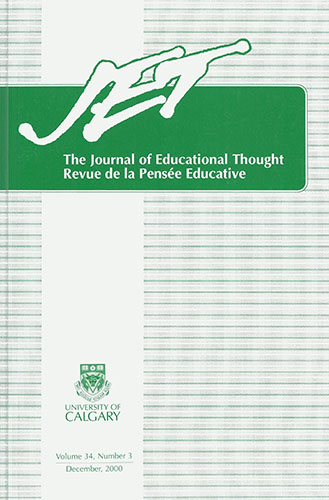Recherche empirique sur les processus de reequilibrage de l'attention dans le traitement des problemes educatifs
DOI:
https://doi.org/10.55016/ojs/jet.v34i3.52674Abstract
A growing number of researchers are reopening the issue of traditional conceptions related to strategies of problem treatment. Strictly deductive and ration a l approaches are described as inadequate for an educational world that must face up to, in many cases , a complexity of meanings : ill -structured situations, multiple objectives, conflicting and affective issue. The difficulty derives from the muddle of significances, diverse points of view on basic da ta, and thus from ways to address the problem. Efforts of centring/recentring and of heurism are required. This article suggests one unique method or mode of problem treatment, based on the identification and management of redirecting processes of attention. The article presents a discussion on data resulting from a research program on educational problem solving. The results of the study support theories which contend that, in the understanding of situations, a representation may work either as a tool or as an obstacle. Practically, the article identifies the main factor blocking understanding of a problem, and suggests four strategic ways to redirect attention: overcoming a ninstant or linear perception of time, interaction between the problem's components and its whole, search for the meaning or sense of a problem, and studying the potential influence of the give ns of a problem.
Downloads
Published
Issue
Section
License
The Journal of Educational Thought retains first publication rights for all articles. The Journal grants reproduction rights for noncommercial educational purposes with the provision that full acknowledgement of the work’s source be noted on each copy. The Journal will redirect to the appropriate authors any inquiries for further commercial publication of individual articles. All authors wishing to publish in JET will be asked to fill in and sign a Consent to Publish and Transfer of Copyright agreement.
Authors must affirm that any submission to JET has not been and will not be published or submitted elsewhere while under considration by JET.

